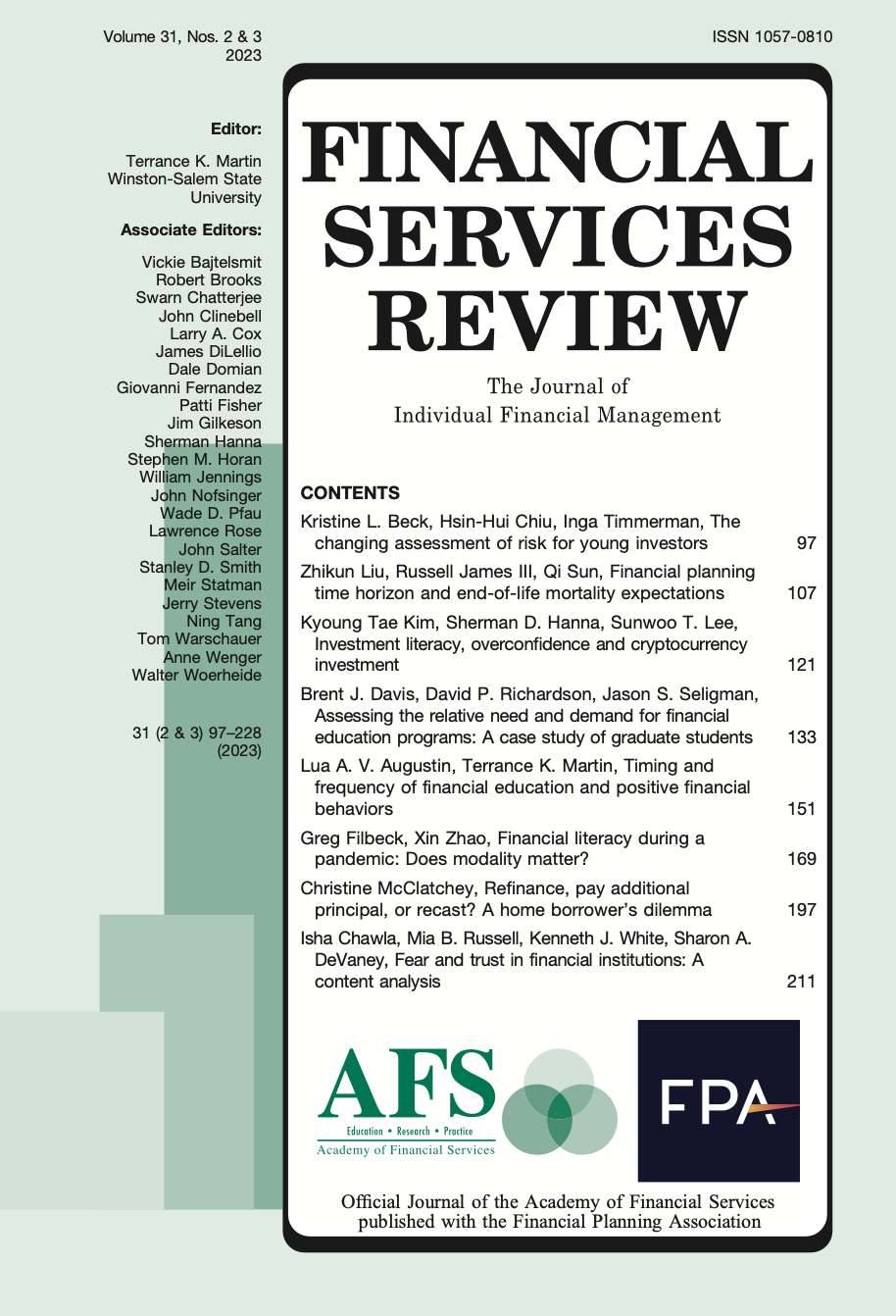Financial planning time horizon and end-of-life mortality expectations
DOI:
https://doi.org/10.61190/fsr.v31i2/3.3529Keywords:
Financial decision making, Self-perceived life expectancy, Financial planning horizon, Behavioral financeAbstract
Previous studies demonstrate that individuals’ financial planning time horizons significantly impact spending, saving, charitable giving, and bequest decisions. Using longitudinal and cross-sec- tional Health and Retirement Study data, the analyses in this paper reveal that older American adults’ financial planning horizons are strongly determined by their self-perceived life expectancy. Over time, the changes in self-perceived life expectancy, marital and retirement status, health condi- tions, and wealth level will cause individuals to shift their financial planning horizons. The insight gained in this study helps financial planners to better understand the factors driving changes in client financial planning horizons and consequent financial decision-making.
Downloads
Published
How to Cite
Issue
Section
License
Copyright (c) 2023 Zhikun Liu, Russell James III, Qi Sun

This work is licensed under a Creative Commons Attribution-NonCommercial 4.0 International License.
Author(s) retain copyright and grant the Journal right of first publication with the work simultaneously licensed under a Creative Commons Attribution-NonCommercial 4.0 International License that allows to share the work with an acknowledgment of the work's authorship and initial publication in this Journal.
This license allows the author to remix, tweak, and build upon the original work non-commercially. The new work(s) must be non-commercial and acknowledge the original work.


